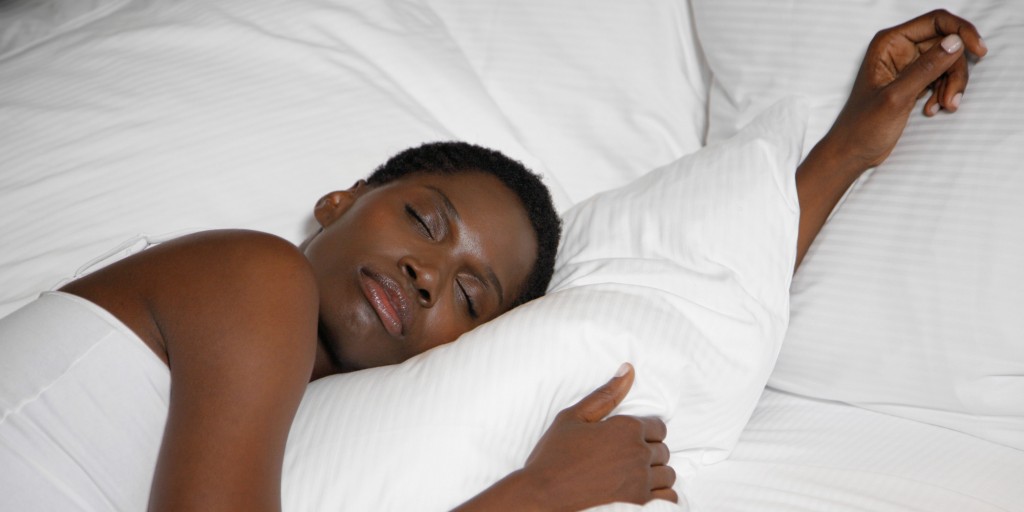Insomnia can be one of the reasons patients see a healthcare practitioner. Night after night of unplanned wakefulness can take its toll on women – and so many women are aware of the far reaching health effects that they are often looking for ‘anything’ that will help.
Conventional healthcare practitioners are most likely to turn to sleep aids – there are many available over the counter as well as by prescription.
I’ve always found it’s better to help a woman get to the root source of her insomnia. Sleep is so important to our natural biological rhythm that it’s worth the effort to help reset its natural flow.
We all have our own unique circadian rhythm which is linked to the sunrises and sunsets of our days. Deep inside our brain clusters of nerve cells work as our internal clock, signaling the time for cell regeneration and hormone production and regulation. They also release the hormone melatonin which makes you sleepy. Light exposure – either natural or artificial inhibits melatonin production. There are times in our lives when due to life circumstances, travel or illness when our circadian rhythm will reset itself – sleep aids can help get through the moment – but its not a good solution long term.
Many women who experience sleeplessness may have physiological imbalances which are responsible for disrupting their inner clock. Diet changes and stress can easily cause daytime fatigue and nighttime insomnia. Unfortunately for many women, these become routine, rather than exceptions. If you have trouble sleeping for more than a few weeks, you are considered to have chronic insomnia.
Chronic insomnia is broken down into two distinct categories – primary insomnia and secondary insomnia. Primary insomnia is usually brought on my conditions which interfere with sleep – caffeine intake, sleep environment and low level worry.
Secondary insomnia has many more potential root causes, and many times occurs or is a result of medical or psychological concerns. Many things might contribute to secondary insomnia including: hormone balance, chronic pain, arthritis, urinary incontinence, mineral deficiencies, insulin resistance and breathing problems.
We find that for many women, hormone imbalance can be a primary culprit. Shifting hormones can cause temperature disruptions – hot flashes and night sweats which affect many women. There is a theory that shifting estrogen levels affect melatonin production – without enough melatonin are brain doesn’t receive the signal to slow and quiet down.
I recommend my patients keep a sleep log for about a week to help us figure out what might be happening during the day which is impacting sleep. Items to track are: caffeine, nicotine and alcohol consumption, foods you eat and when you eat them, exercise habits, stress levels, and the kind of medications and supplements you take – when you take them and the amounts. Your bedtime and noise and light levels when you can’t sleep.
The first step in getting back to sleep and to find out what keeps you awake. When creating a plan to get you back to sleeping well we recommend:
- Insuring that hormones are balanced! Aside from diet and lifestyle changes, you may want to consider nutritional supplements or even talking with your healthcare practitioner about hormone replacement therapy.
- Create a good nighttime routine. Set the stage for a good night’s sleep. Try to go to bed at about the same time every day, turn of all electronics about an hour before bed and make sure your environment is comfortable.
- When you are suffering from sleeplessness it’s more important than ever to support your body’s nutritional needs – during times of stress, our bodies may require more nutrients. One way to do this is take a high quality multivitamin/mineral supplement every day.
- You also may want to consider one of nature’s own sleep aids – calming teas or even a supplement with herbs that assist with sleep. I always recommend working with a healthcare practitioner to help choose the right supplement for you.
- If you try some of these steps and don’t see relief, you may want to consider looking into behavior modification techniques for insomnia. There are wonderful choices available – guided imagery, cognitive behavioral therapy, mediation – the list goes on.
I hope I’ve reassured you that insomnia is a highly treatable condition that doesn’t necessarily need pharmaceutical intervention.
When you listen to the messages that your body is sending, you can often provide just the support you need!

